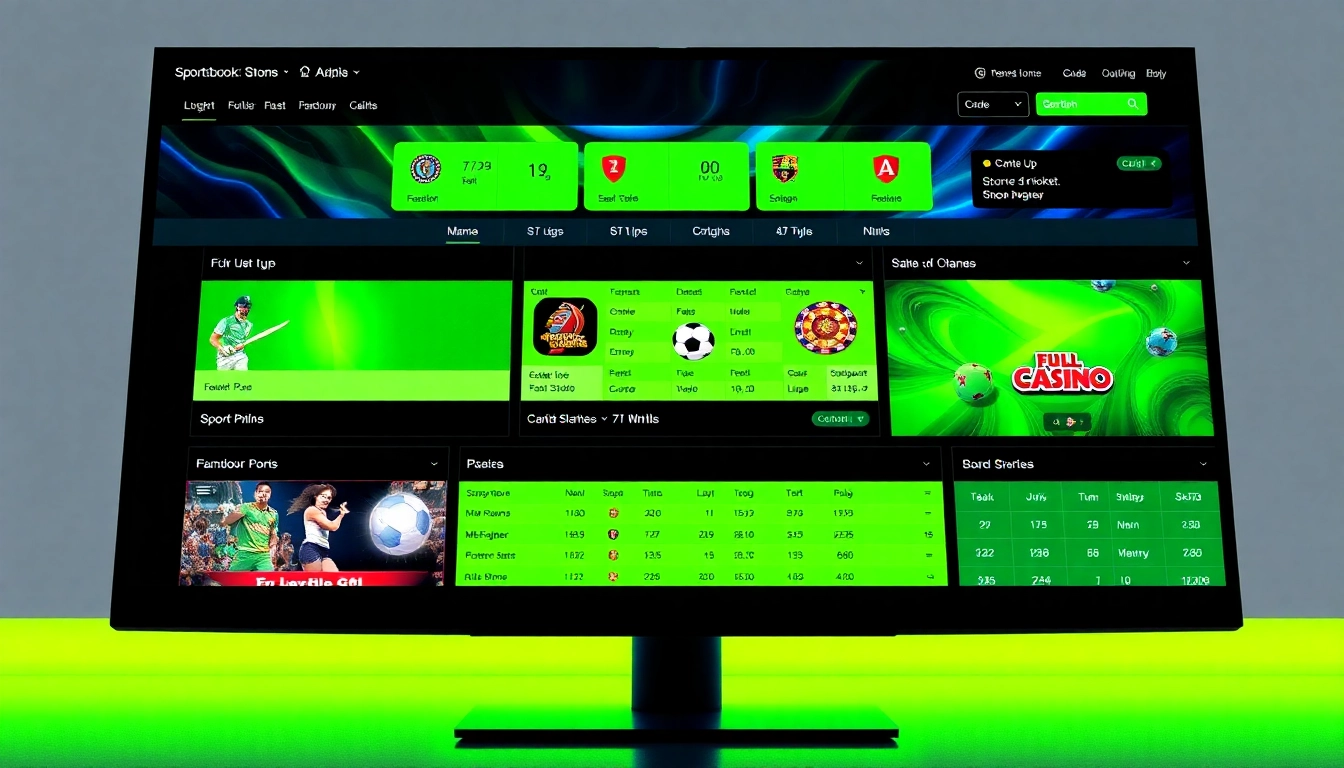Exploring the Latest News in the Metaverse and Its Market Impact
The Metaverse continues to be a focal point in the world of digital innovation, capturing the attention of investors, technologists, and mainstream consumers alike. As a rapidly evolving ecosystem, the latest developments signal both promising opportunities and complex challenges. For those seeking to stay ahead in this space, understanding key updates and emerging trends is essential. To delve deeper into the current landscape, visit Metaverse Latest News for comprehensive insights.
Understanding the Current State of the Metaverse
Key recent updates and headlines in Metaverse news
The recent headlines paint a picture of a dynamically shifting environment. Major tech companies are investing heavily into Metaverse platforms, with Meta Platforms (formerly Facebook) exploring new partnerships to integrate AI and enhance user experiences. Notably, Meta is reportedly experimenting with collaborations to optimize their applications further, aiming to blend social media with immersive virtual spaces. Meanwhile, pioneering companies like Decentraland and The Sandbox are expanding their digital real estate and avatar-driven economies, signalling increased adoption. The record-breaking surge in digital assets such as NFTs and virtual land demonstrates widespread interest, with market caps surpassing billions of dollars.
Amidst these headlines, regulatory and security concerns remain pertinent. Authorities in the U.S. and Europe are scrutinizing privacy practices and the handling of user data within these ecosystems, prompting industry stakeholders to prioritize security measures.
Major companies investing in Metaverse platforms
Leading technology giants are pouring resources into the development of Metaverse infrastructure. Meta has committed billions to build immersive platforms, aiming to create interconnected virtual worlds for social interaction, gaming, and commerce. Microsoft’s acquisition of gaming companies like Activision Blizzard signals a focus on integrating gaming into the Metaverse, fostering social experiences and enterprise applications. Other notable investors include NVIDIA, which is developing advanced graphics hardware and AI tools for realistic virtual environments, and Epic Games, whose Unreal Engine provides the backbone for many Metaverse projects.
Beyond these tech giants, traditional corporations—from fashion brands like Nike and Gucci to automotive manufacturers—are establishing virtual storefronts and interactive showrooms to engage consumers in innovative ways.
Trends shaping the Metaverse ecosystem today
Several interconnected trends are shaping the future of the Metaverse. First, the integration of artificial intelligence is enhancing personalized user experiences, enabling virtual avatars to interact more naturally. Second, blockchain technology underpins ownership and transfer of digital assets such as NFTs and cryptocurrencies, fostering robust virtual economies. Third, advancements in hardware—like standalone VR headsets from Oculus and HTC—are making immersive experiences more accessible and affordable.
Furthermore, user-generated content is gaining traction, with platforms increasingly empowering communities to create and monetize their virtual spaces. The rise of decentralized governance models also suggests a shift toward more democratized control over virtual worlds, aligning with broader Web3 principles.
Technological Innovations Fueling the Metaverse
Emerging hardware and software advancements
Recent innovations in hardware include high-resolution VR headsets, haptic feedback gloves, and spatial audio systems that deliver hyper-realistic virtual encounters. Companies like Meta and Sony are pushing the boundaries of visual fidelity, with headsets that incorporate eye-tracking and augmented reality capabilities.
On the software side, real-time rendering engines like Unreal Engine and Unity have become fundamental tools for creating immersive environments. These engines support complex physics, realistic lighting, and seamless multiplayer interactions, enabling developers to craft more engaging virtual worlds. Additionally, cloud computing services are facilitating scalable, low-latency experiences by offloading processing tasks from local devices.
Role of blockchain and virtual currencies
Blockchain technology ensures provable ownership and secure trading of digital assets within the Metaverse. Cryptocurrencies such as Ethereum serve as the primary medium of exchange, while NFTs authenticate digital collectibles and assets. The integration of decentralized finance (DeFi) protocols enhances economic interoperability between virtual worlds, allowing seamless cross-platform asset transfers.
This interconnected financial infrastructure fosters a vibrant virtual economy, encouraging creators, investors, and users to participate actively. Yet, it also introduces regulatory scrutiny, particularly concerning money laundering, asset security, and tax compliance.
Artificial intelligence integration in virtual worlds
AI-driven avatars and virtual assistants are becoming commonplace, making interactions more natural and engaging. AI enhances NPC behaviors, automates moderation, and personalizes content delivery, which reduces friction and increases retention. Meta’s internal use of external AI models exemplifies strategic efforts to scale these capabilities, empowering developers to create adaptive, intelligent virtual entities.
Moreover, AI-powered procedural content generation accelerates the creation of vast, diverse worlds, reducing development costs and timeframes. As AI continues advancing, the potential for realistic, autonomous virtual inhabitants grows exponentially.
Implications for Business and Consumer Engagement
Opportunities for brands in the Metaverse
Businesses are recognizing the immense potential of the Metaverse for brand building, product launches, and customer engagement. Virtual storefronts allow for experiential shopping, where consumers can try products in immersive environments. Luxury brands, in particular, are pioneering exclusive virtual collections, attracting high-net-worth individuals seeking unique experiences.
Advertising in virtual worlds offers targeted, interactive campaigns that outperform traditional media in engagement metrics. For example, virtual concerts and events create brand buzz and foster community among users. Fitness, education, and entertainment sectors are also leveraging the Metaverse to deliver novel value propositions.
Enhancing user experiences through immersive tech
Immersive technologies like 3D spatial audio, haptic feedback, and realistic avatars enhance user presence, making interactions feel genuine. These innovations facilitate richer social connections, enabling users to form communities and shared experiences regardless of geographical boundaries. Platforms employing AI-driven personalization tailor content to individual preferences, increasing user retention and satisfaction.
Companies investing in these technologies are creating seamless transitions between virtual and physical experiences, fostering more authentic engagement and loyalty.
Challenges and considerations for early adopters
Despite the opportunities, early adopters face technical, ethical, and regulatory hurdles. Hardware limitations, high development costs, and interoperability issues constrain scalability. Privacy concerns emerge as vast amounts of user data are generated, raising questions about security and consent. Ethical considerations include ensuring inclusivity, avoiding toxic behavior, and maintaining mental health integrity within immersive spaces.
Entrepreneurs and corporations must adopt comprehensive strategies, encompassing rigorous testing, privacy safeguards, and community management protocols, to succeed sustainably in the Metaverse landscape.
Regulatory and Ethical Dimensions of the Metaverse
Emerging policies and legal frameworks
Governments are beginning to formulate policies addressing digital ownership, data privacy, and content moderation within virtual worlds. The European Union’s Digital Services Act and similar initiatives aim to hold platform providers accountable for illegal or harmful content, while emphasizing transparency and user rights.
Legal recognition of virtual assets and identities is evolving, potentially impacting taxation, contracts, and ownership rights. Companies operating across borders must navigate complex international legal terrains, requiring proactive compliance measures.
Data privacy and security concerns
Massive data collection within the Metaverse exposes users to privacy breaches and identity theft. Ensuring secure data storage and ethical handling is paramount. End-user consent protocols and encryption technologies are advancing to mitigate risks, but vigilance remains crucial as cyber threats evolve.
Furthermore, transparent data policies help build trust, critical for sustained user engagement and regulatory approval.
Inclusive design and user safety practices
Designing for inclusivity extends beyond accessibility; it involves creating space for diverse identities, cultures, and languages. Developers are adopting standards for intellectual property, anti-discrimination, and mental health considerations. Safety features such as moderation, reporting tools, and content filters are essential to foster positive virtual environments.
Proactive policies ensure the Metaverse is welcoming, equitable, and safe for all participants, encouraging broader adoption.
Looking Ahead: Future Prospects and Innovations
Predictions for Metaverse growth and expansion
The Metaverse is poised for exponential growth over the next five years, driven by technological advancements and increasing mainstream acceptance. Analysts anticipate a surge in virtual commerce, with total market value potentially reaching hundreds of billions, integrating seamlessly with existing digital economies.
As hardware becomes more affordable and user-friendly, global adoption will accelerate. Predictions also include the expansion of enterprise use cases in remote work, training, and simulation, further embedding the Metaverse into daily life.
Potential new features and use cases
Future developments may include enhanced biometric interaction, such as brain-computer interfaces, enabling direct mental input. Augmented reality overlays could bridge virtual and physical environments for immersive navigation. Additionally, persistent virtual worlds with real-time economic and social dynamics will foster more complex ecosystems.
Use cases will diversify beyond entertainment — from personalized education experiences to virtual health consultations, transforming how society interacts, learns, and performs daily activities.
Strategies for staying informed on Metaverse developments
Staying current requires monitoring industry reports, attending key conferences, and engaging with developer communities. Subscribing to updates from leading tech firms and regulatory bodies helps anticipate shifts. Investing in education about emerging tools like blockchain, AI, and 3D modeling provides a competitive edge.
Regularly reviewing trusted sources ensures readiness to adapt strategies for evolving opportunities and challenges in the Metaverse.





